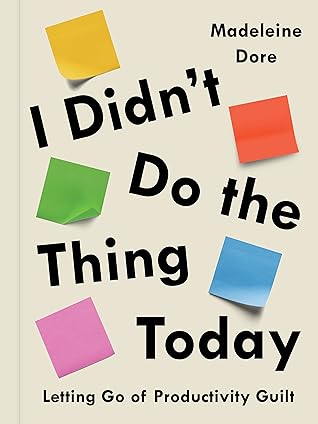More on this book
Community
Kindle Notes & Highlights
Read between
July 25 - July 27, 2022
For many of us, our days have become containers for internalized capitalism, or the pervading sense that what we do is tied to our worth.
When we conflate productivity with worthiness, what we do is never enough. We can always do more, and there is always more to do.
If we aren’t benefiting from our overwork, overdoing, overachieving, why do we insist on fastening our self-worth to how productive we are?
Perhaps we don’t want to be more productive in our days, but more fecund—that is, more capable of producing new growth, but not always in producing mode.
To be fecund, we need to be nourished. This view shifts the emphasis away from the things we accomplish and toward the things that feed us: how well we have slept, how dedicated we are to something, how kind, how assertive, how generous, how well we treat the people we love, how much we learn, how resilient we are. We so often overlook these parts of the day, but it’s the very mulch that we need to yield growth.
Living creatively, then, means to live flexibly and openly, not sequentially.
“We are not only gregarious animals, liking to be in sight of our fellows, but we have an innate propensity to get ourselves noticed, and noticed favorably, by our kind.” Perhaps it’s not the wanting to be noticed that’s a cause for concern, but the lengths to which we go to achieve this. When we aren’t the recipients of whatever we’ve determined to be the marker of specialness, all too often we can feel empty and unfulfilled. As a counterweight, we add more to our days, making our lives faster and busier in the present in pursuit of success and recognition in the future.


